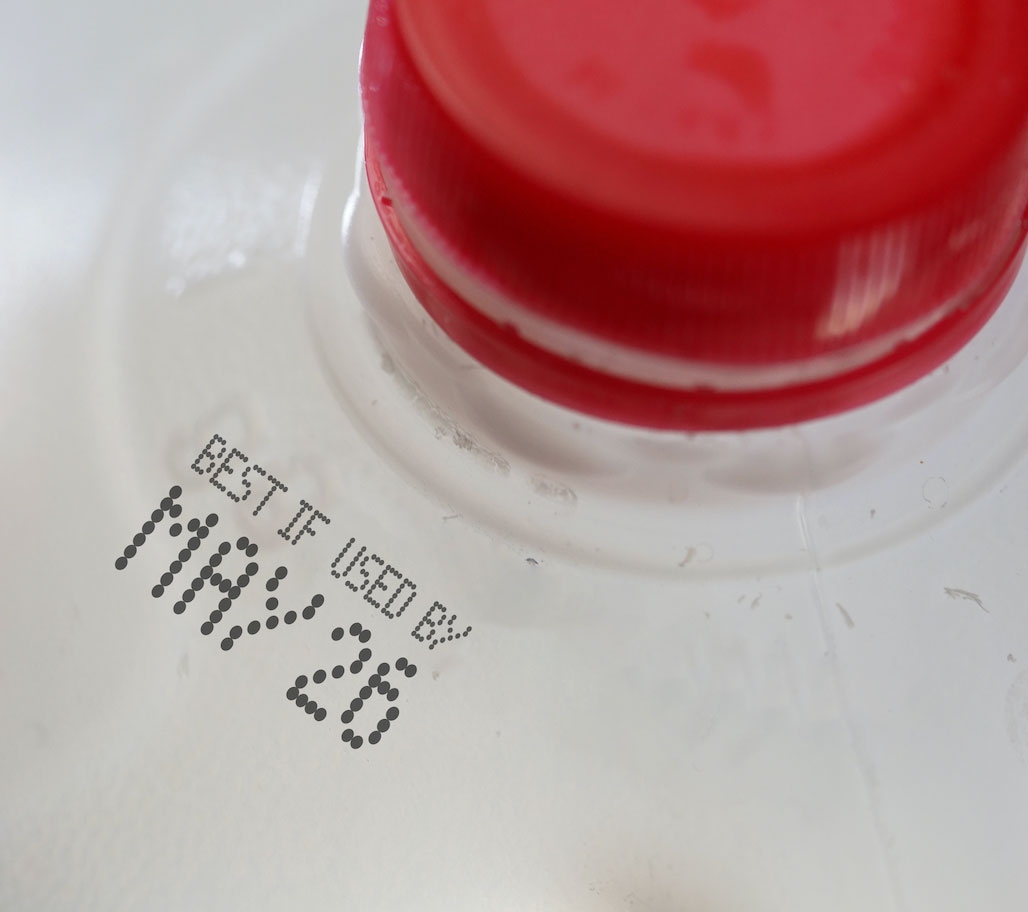Toss it after the date on the label or keep it for later? That’s the question consumers face on a daily basis when confronted with the date labels on food. Confusion about what date labels do and don’t mean is a leading contributor to food waste and efforts to streamline date labels have become a core tenet of the food waste reduction playbook.
In a helpful move in that direction, U.S. Food and Drug Administration (FDA) Deputy Commissioner for Food Policy and Response, Frank Yiannas, recently penned an open letter to the food industry promoting the benefits of a streamlined food date labeling system. Yiannas’ letter encourages the food industry to use the standard labeling phrase “Best If Used By” on food products to indicate food quality, consistent with other recent government and private sector date labeling initiatives.
FDA’s letter also helpfully points out that, “If stored properly, a food product should be safe, wholesome, and of good quality after the quality date.” If you live in a household where some members want to pitch everything past the quality date and others want to keep it, the “keepers” can now cite the FDA in making your case to save that food for later.
NRDC and Harvard Food Law and Policy Clinic (FLPC) have advocated for standardizing date labels at the federal level since the release of our 2013 report, the Dating Game. In the 2016 Roadmap to Reduce U.S. Food Waste by 20 Percent, ReFED identified standardized date labeling as one of the top three solutions to reduce food waste. As a group, we welcome FDA’s statement. We also believe that federal legislation continues to be vital for establishing a consistent, uniform labeling system nationwide.
In the absence of federal regulation, consumers face a dizzying array of date labels on the foods they purchase. Forty-one states require a date label on at least some food products, and twenty states prohibit or restrict the sale or donation of food past the labeled date. Those inconsistencies make it tough for manufacturers to comply and sow the seeds of confusion among consumers.
Also, manufacturers typically use date labels to indicate quality, but many consumers and businesses mistakenly believe they are indicators of food safety. This confusion leads consumers to unnecessarily throw out food once it reaches the quality date. An estimated 20 percent of consumer food waste is caused by confusion about the meaning of date labels.
FDA’s letter builds on several recent initiatives by government and industry to standardize date labeling language and better communicate to consumers when date labels are meant to indicate quality and when they indicate food safety:
- In 2016, the USDA Food Safety and Inspection Service (FSIS) issued guidance on date labeling practices for foods under its jurisdiction, recommending the use of the standard phrase “Best if used by” to indicate quality.
- Additionally in 2016, ReFED convened a multi-stakeholder Date Labeling Working Group comprised of industry, legal and food safety experts to determine which products should receive the quality and the discard date labels. The Working Group recommended a standard two-label approach, one for quality and one for safety.
- In 2017, the Food Marketing Institute (FMI) and the Grocery Manufacturers Association (GMA) launched the Product Code Dating Initiative, a voluntary call to action that encouraged their members to use these recommended standard quality and safety phrases on their products.
- This same voluntary approach has also been adopted by the Consumer Goods Forum, with membership of over 400 companies from 70 different countries.
The FDA letter similarly encourages industry to use the standard phrase “Best if Used by” on products to indicate quality on foods under FDA jurisdiction. FDA regulates approximately 80% of foods in the United States, so this statement by FDA leadership is particularly welcome.
However, the steps taken to date are not sufficient to achieve uniform date labeling across the country given the patchwork of state requirements and other factors. (See this issue brief for more information about state law conflicts). Also, FDA recommendations do not address the use of a standard term to indicate when food has been date labeled for safety and should be discarded once the date has passed.
Federal legislation will be needed to truly tackle this issue, by preempting the numerous contradictory state laws that complicate implementation of a two-label system. Federal legislation should also override state laws that restrict the sale or donation of food past the quality date and support a national campaign to educate consumers.
NRDC, FLPC and ReFED are pleased to see FDA take this step to advance date label uniformity. We hope that federal legislation can be enacted to further reduce consumer confusion and keep more good food from going to waste.
This blog was co-authored by JoAnne Berkenkamp at NRDC, Katie Sandson and Emily Broad Leib at the Harvard Food Law and Policy Clinic, and Jackie Suggitt at ReFED.

